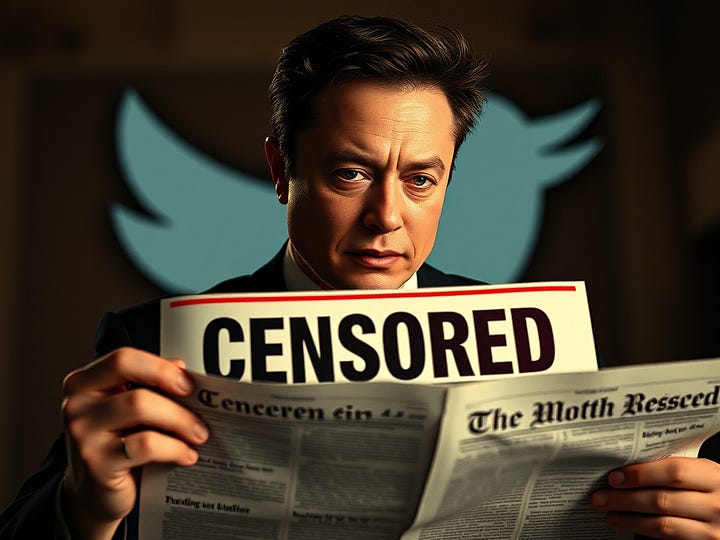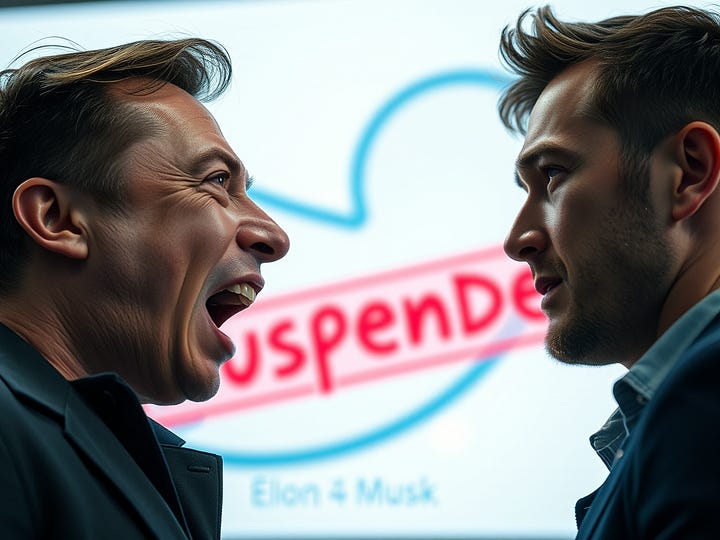Non-members can read this story free on my blog page. I also published for my readers on Medium.
As a retired scientist and public health professional, I have personally experienced the consequences of censorship, which gives me a profound understanding of the struggles journalists face when they speak the truth.
Their commitment to transparency and integrity often comes at a cost, especially when they challenge established narratives. This shared experience has deepened my empathy for those in the media who risk their platforms and careers in pursuit of honesty, and it reinforces the importance of supporting environments that protect free expression.
Naturally, I oppose the spread of harmful content on social media, especially when it poses a risk to the public. Responsible content moderation is crucial for protecting the common good. I hope this interactive dialogue, which I prepared via Google Notebook, can give you helpful perspectives on the impact of censorship on social media.
I wrote this follow-up article because, in a recent post, I highlighted the prominent cyber attacks globally that the public did not expect. It is titled The Biggest Data Breaches You Never Saw Coming. One of them was the recent situation in the US.
In the list of the biggest breaches was the United States, where the 2024 presidential campaigns of Trump and Biden became targets. Iranian hackers took aim, compromising sensitive political strategies.
The Poignant Situation of Mr Ken Klippenstein
I recently read an article by popular journalist,
, who discusses his permanent ban from X (formerly Twitter) despite the platform’s public claims that it was a temporary suspension.I understand from his post Klippenstein argues that his suspension is politically motivated, related to his article linking to the Vance Dossier, which allegedly contained publicly available addresses.
Klippenstein compares this to the Hunter Biden laptop story and suggests that X is selectively enforcing its policies, driven by Elon Musk’s political affiliations. He warns that such censorship could discourage future reporting on sensitive political documents.
As I subscribed to his content in another newsletter, Ken Klippenstein details how Meta and Google have blocked access to his J.D. Vance dossier, following X’s permanent ban of his account.
The platforms cite fear of foreign influence, specifically the dossier’s Iranian origin, despite no claims of the document being fake. Klippenstein criticizes this censorship, comparing it to Meta’s past mistakes in handling politically sensitive content.
He argues that such suppression reduces public access to important information, especially in times of heightened panic over foreign interference.
Then I watch an eye opening video posted by the CEO of Substack
interviewed by the co-founder .This 24-minute video gives us a valuable perspective on how X operating. I like the idea of free speech on X but these instances show them it is selective and subjective.
My conclusion is that the promise of free speech on major social media platforms often feels like lip service, with content moderation swayed by political or external pressures.
While I acknowledge the complexity of these decisions, it is clear that true freedom of expression remains elusive.
That’s why I prefer writing on Substack, a platform that, so far, has respected writers’ voices — even those who critique it.
Substack provides a space where diverse opinions can be shared without fear of unjust censorship, promoting genuine dialogue and transparency.
Here is a post reflecting my thoughts about censorship for public health related content.
Understanding Medium’s Censorship on Cancer-Related Posts: A Call for Transparency: A meticulously crafted article by a specialist medical doctor and seasoned scientist has shockingly received zero…medium.com
Thank you for reading my story and listening to my podcast. I wish you a healthy and long life with your loved ones.
Thanks to , editors and helping me publish this important article for the public awareness on multiple platforms.
About Me for New Readers
I am a retired healthcare scientist in his mid-70s, and I have several grandkids who keep me going and inspire me to write on this platform. I am also the chief editor of the Health and Science publication on Medium.com. As a giveback activity, I volunteered as an editor for Illumination publications, supporting many new writers. I will be happy to read, publish, and promote your stories. You may connect with me on LinkedIn, Twitter, and Quora, where I share stories I read. You may subscribe to my account to get my stories in your inbox when I post. You can also find my distilled content on Subtack: Health Science Research By Dr Mike Broadly. My Medium stories listed on Lessons Learned from My Personal Stories.













Journalistic Censorship Intensifies on Social Media: A Look at Ken Klippenstein’s Suspension on X